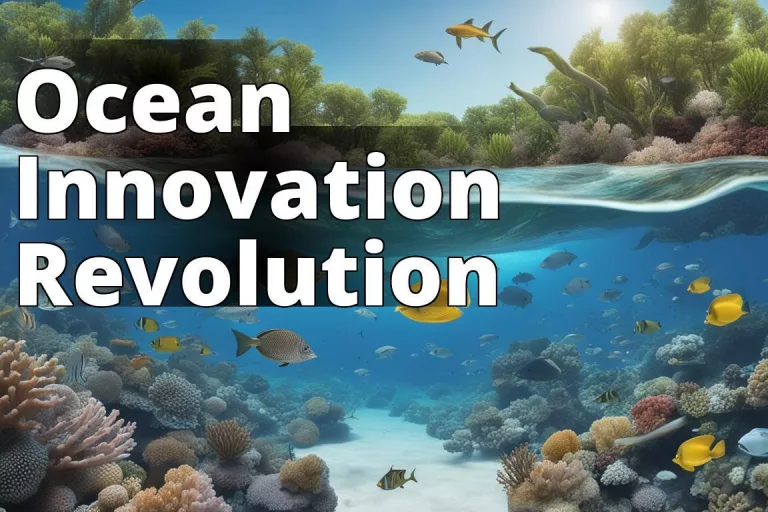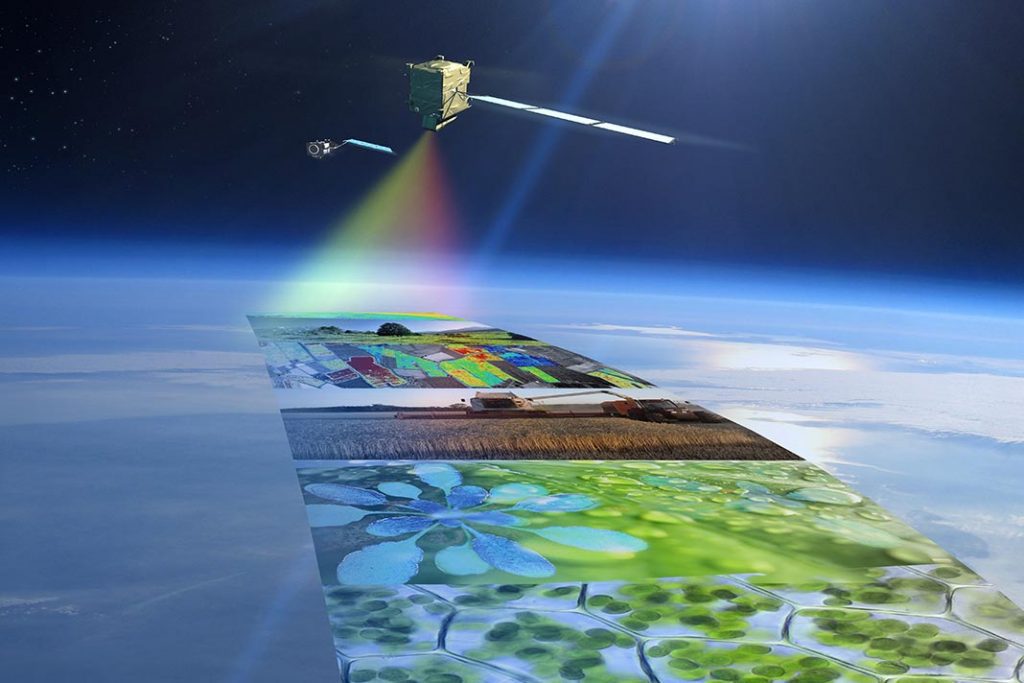Learn about Ocean Tech for Climate Health
- The impact of ocean sustainability on climate change mitigation.
- Innovative technological solutions for ocean health and climate change, such as AI-driven solutions and sustainable fishing practices.
- Policy, regulation, and investment trends in ocean technology for climate health.
A. Significance of Ocean Technology in Addressing Climate Change
B. Importance of Ocean Health in Climate Change Mitigation
Interconnection between Ocean Health and Climate Change
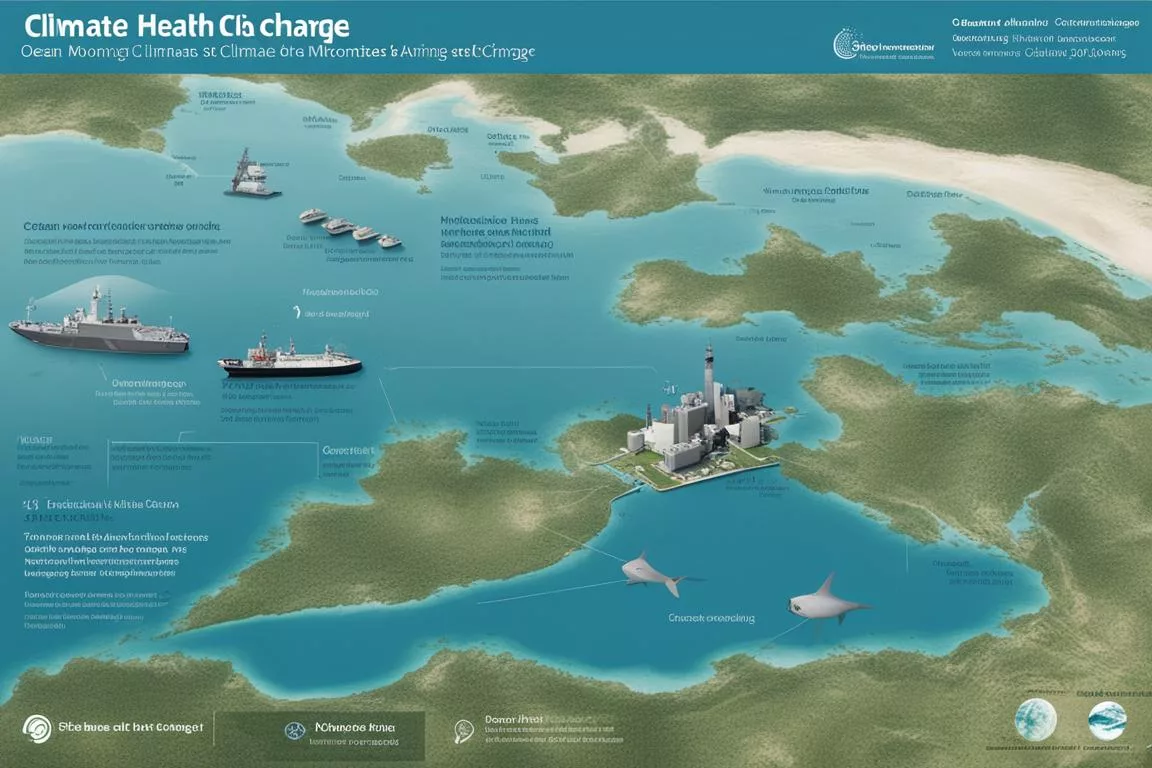
Understanding the Impact of Ocean Sustainability on Climate Change
How does ocean technology revolutionize climate change solutions? The world’s oceans play a crucial role in regulating the Earth’s climate. As the effects of climate change continue to intensify, it’s becoming increasingly evident that the health of the oceans is intricately linked to the planet’s overall climate stability. The integration of innovative ocean technology has emerged as a pivotal force in addressing climate change and its far-reaching implications. By harnessing the power of ocean technology, it becomes possible to gain valuable insights into the complex interplay between ocean health and climate change and to develop effective strategies for mitigating environmental risks.
The Critical Need for Solutions in Protecting Oceans and Mitigating Climate Risks
The need to protect our oceans and mitigate the risks of climate change is more pressing than ever. With only 19% of the ocean mapped and climate risks on the rise, there is an urgent call for sustainable solutions to safeguard the world’s oceans. Innovative technologies are pivotal in this endeavor, as they enable scientists and policymakers to leverage crucial data and insights to tackle these challenges head-on. The integration of ocean technology not only aids in understanding the impact of climate change on ocean health but also facilitates the development of proactive measures to ensure the sustainability of our oceans in the face of environmental upheavals.
Current Challenges Faced by Oceans
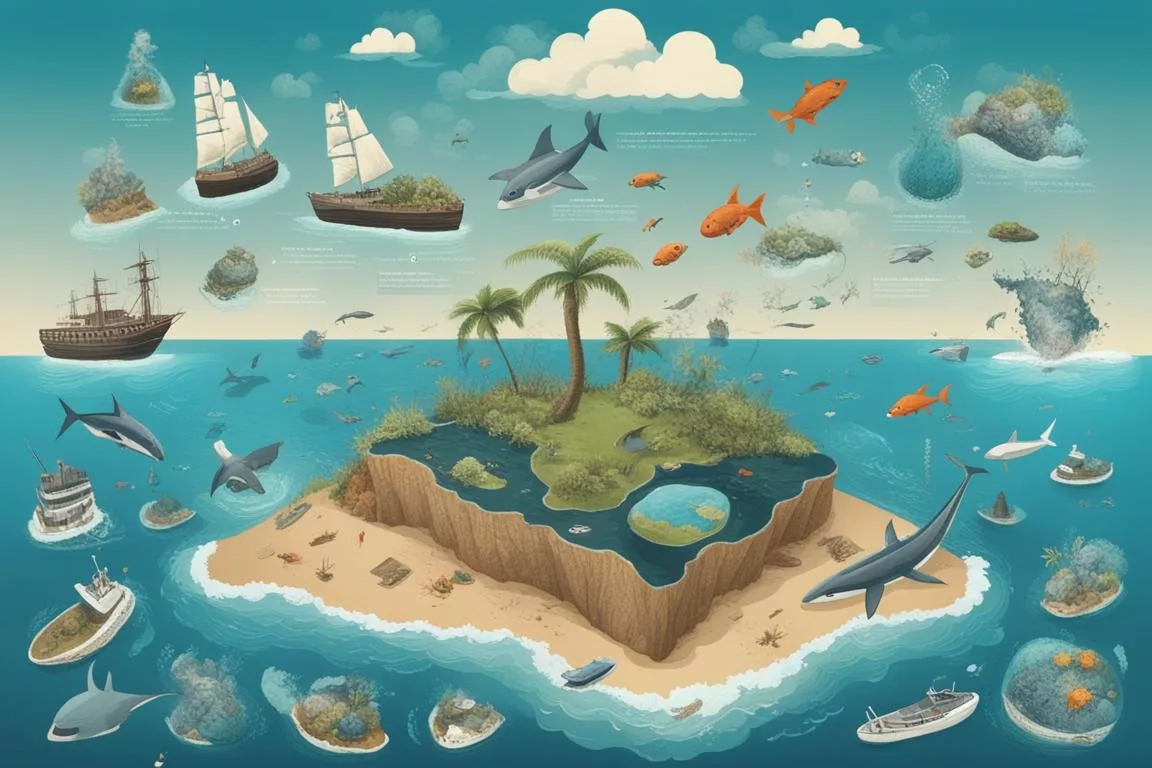
Pollution and Its Impact on Ocean Health and Climate Change
The issue of pollution poses a significant threat to ocean health and exacerbates the effects of climate change. From plastic waste to industrial effluents, the cumulative impact of pollution is taking a toll on marine ecosystems, disrupting the delicate balance of ocean life, and contributing to the overall degradation of the environment. Furthermore, the release of greenhouse gases from human activities not only leads to climate change but also contributes to ocean acidification, thereby compounding the challenges faced by marine ecosystems.
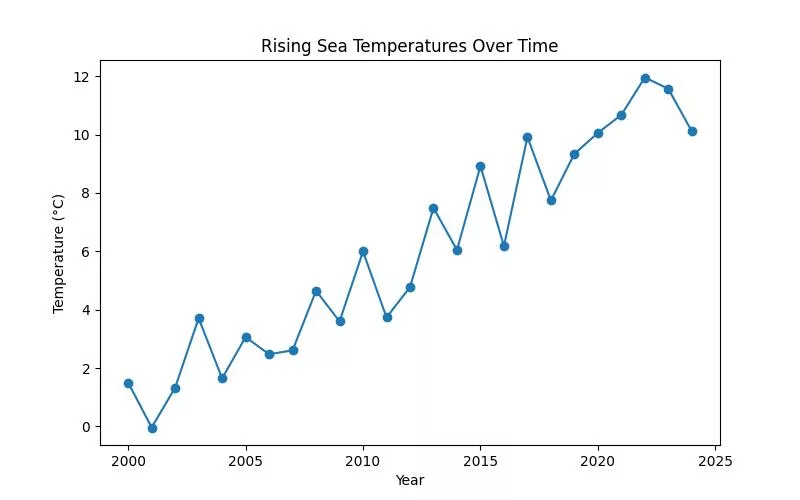
Rising Sea Temperatures and Climate Change
The escalating rise in sea temperatures is a direct consequence of climate change and poses a severe threat to the health of our oceans. The warming of ocean waters disrupts marine ecosystems, leading to the loss of biodiversity and the alteration of critical oceanic processes. This, in turn, has far-reaching implications for global climate patterns, underscoring the urgent need for sustainable solutions to mitigate the adverse effects of rising sea temperatures.
Ocean Acidification and Its Connection to Climate Health
Ocean acidification, driven by the absorption of excess carbon dioxide from the atmosphere, is a critical issue that directly impacts both ocean health and climate stability. The acidification of ocean waters has profound implications for marine life, including the impairment of shellfish and coral reef formation. Moreover, the potential feedback loops resulting from ocean acidification can further exacerbate the effects of climate change, creating a complex web of environmental challenges that demand immediate attention and innovative solutions.
Overfishing and Climate Change Implications
Overfishing is a pressing concern that not only affects the sustainable balance of marine ecosystems but also has implications for climate change. The depletion of key marine species disrupts the intricate web of oceanic life, leading to ecological imbalances that can ripple through global climate systems. Addressing the interlinked challenges of overfishing and climate change necessitates the adoption of sustainable fishing practices and the deployment of advanced technologies to monitor and manage marine resources effectively.
| Current Challenges Faced by Oceans | Innovative Technological Solutions for Ocean Health and Climate Change |
|---|---|
| Pollution and Its Impact | AI-Driven Solutions for Ocean Health and Climate Change |
| Rising Sea Temperatures | Data Analytics for Monitoring Ocean Health and Climate Change |
| Ocean Acidification | Sustainable Fishing Practices and Their Role in Climate Health |
| Overfishing | Advanced Solutions for Plastic Waste Management in Oceans |
Innovative Technological Solutions for Ocean Health and Climate Change
AI-Driven Solutions for Ocean Health and Climate Change
The integration of artificial intelligence (AI) is revolutionizing the landscape of ocean health and climate change solutions. AI-powered technologies enable the analysis of vast datasets to identify patterns, predict environmental trends, and optimize resource management. From predictive modeling for oceanic ecosystems to the development of AI-driven climate change mitigation strategies, the potential of AI in addressing these critical challenges is immense.
Data Analytics for Monitoring Ocean Health and Climate Change
The application of advanced data analytics plays a pivotal role in monitoring and understanding the dynamics of ocean health and climate change. By leveraging sophisticated analytical tools, researchers can gain valuable insights into oceanic parameters, environmental trends, and the impact of climate change on marine ecosystems. Furthermore, data analytics empowers stakeholders to make informed decisions and enact targeted interventions to safeguard the health of the oceans and mitigate climate-related risks.
Sustainable Fishing Practices and Their Role in Climate Health
The adoption of sustainable fishing practices is essential in promoting ocean health and mitigating the effects of climate change. By embracing responsible fishing methods and leveraging technological innovations such as real-time monitoring systems and data-driven resource management, it becomes possible to preserve marine biodiversity and support the resilience of oceanic ecosystems in the face of environmental challenges.
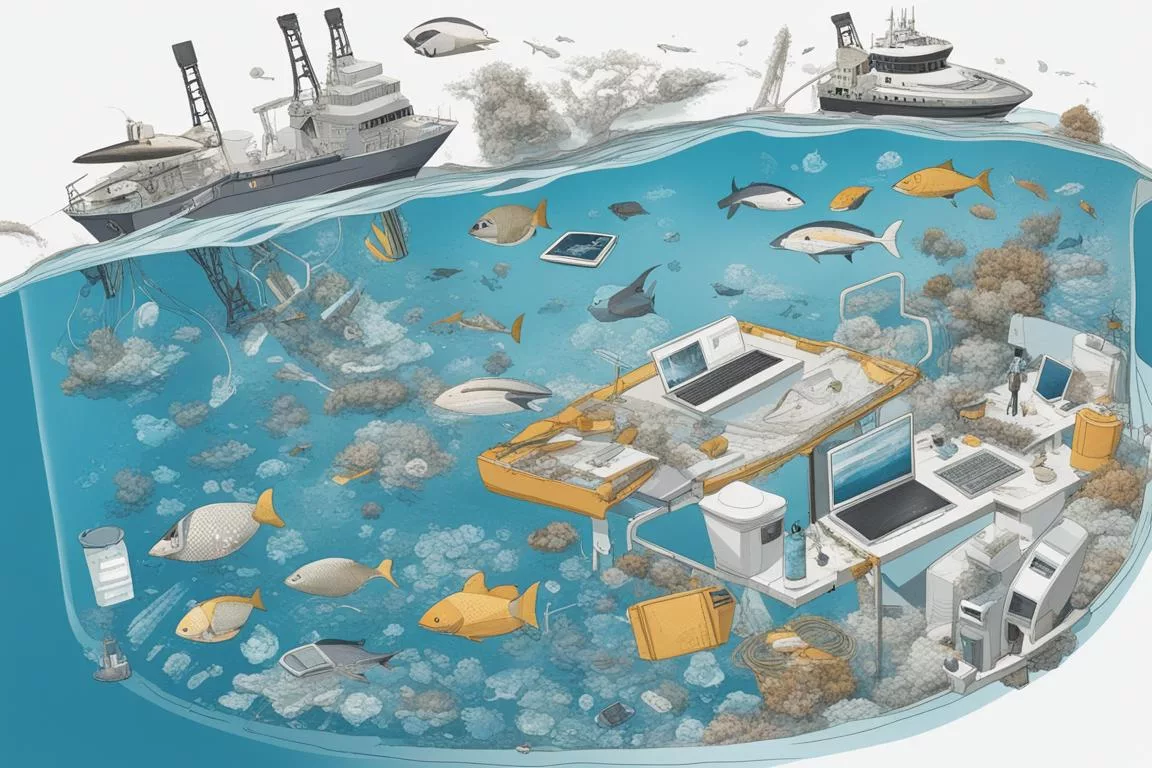
Advanced Solutions for Plastic Waste Management in Oceans
The management of plastic waste in oceans is a critical area where innovative technological solutions are making a tangible impact. From AI-powered autonomous vehicles for cleaning up marine debris to advanced recycling technologies that minimize the accumulation of plastic waste, there is a growing array of innovative solutions aimed at addressing this pressing environmental concern and reducing the detrimental effects of plastic pollution on ocean health and climate stability.
The Role of Science, Data, and Technology in Understanding Ocean Health and Climate Change
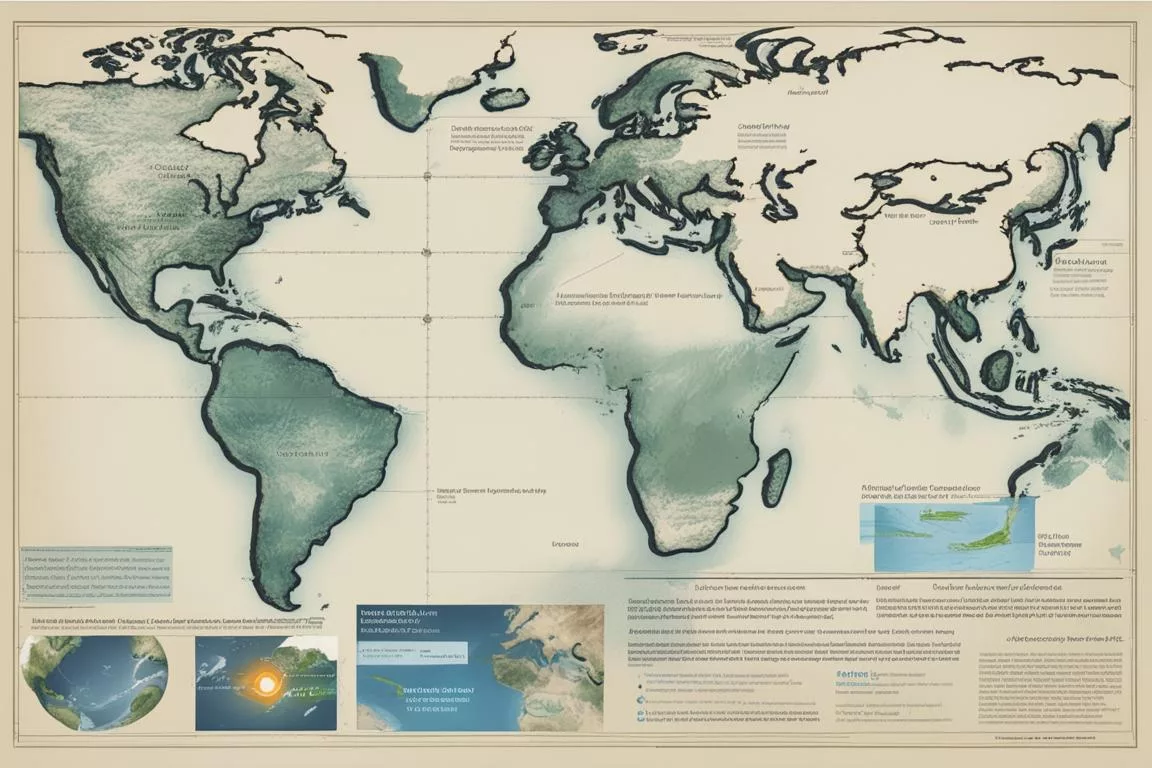
Utilizing Satellite Imagery for Monitoring Ocean Health and Climate Change
Satellite imagery has emerged as a powerful tool for monitoring ocean health and climate change on a global scale. The utilization of satellite-based remote sensing technologies enables the continuous observation of oceanic parameters, the tracking of environmental changes, and the assessment of climate-related impacts on marine ecosystems. This wealth of data, when combined with advanced analytical techniques, provides invaluable insights for informed decision-making and the formulation of effective environmental policies.
Advancements in Microradiometers and Their Impact on Climate Health
The development of microradiometers represents a significant advancement in the study of ocean health and climate change. These sophisticated instruments, developed through collaborations between research institutions and organizations such as NASA, facilitate the precise measurement of crucial parameters related to oceanic health and the monitoring of climate change indicators. The insights gleaned from microradiometer data contribute to a deeper understanding of the complex interplay between ocean health and climate dynamics, thereby informing targeted interventions and conservation efforts.
Innovative Tools for Understanding and Addressing Ocean Health and Climate Change
Innovative tools, ranging from autonomous underwater vehicles equipped with environmental sensors to advanced modeling software for predicting climate scenarios, are driving unprecedented progress in understanding and addressing ocean health and climate change. These technological innovations empower scientists, policymakers, and conservationists to gain comprehensive insights into the intricate complexities of marine ecosystems and to develop effective strategies for preserving ocean health and mitigating climate-related risks.
Incorporating personal anecdotes or interviews with experts who have firsthand experience in implementing ocean technology for climate change solutions, providing case studies or real-world examples of successful application of ocean technology in mitigating climate change effects, and including perspectives from individuals directly involved in the development or implementation of innovative technological solutions for ocean health and climate change can further enrich the content and provide a more comprehensive understanding of the topic.
This is the end of the first part of the article. Keep reading the next sections for more insightful content on the significance of ocean technology in addressing climate change, the potential impact of ocean technology on climate change mitigation, and the future outlook for ocean technology and climate health.
